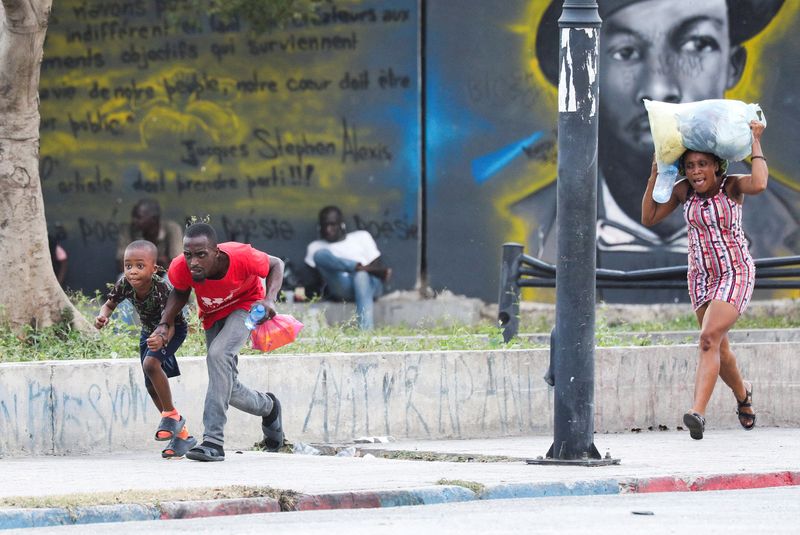By Harold Isaac and Gilbert Bellamy
PORT-AU-PRINCE/KINGSTON (Reuters) – With still no sign of a long-promised transition council to usher in the deployment of international troops and restore order, Haitians who can are trying to flee the country.
Violent gangs have taken control of much of the capital, killed thousands and forced millions into acute starvation.
“Every day is a question of life and death,” Pierre Joseph, a 34-year-old Save the Children worker, said in a statement. He was said to have been forced to leave two different homes with his wife and six-month-old baby, and was struggling to find basic necessities.
“For the first time we are faced with a crisis where nothing works, where the government simply doesn’t work,” he said, adding that food and electricity supplies are collapsing. “Everyone is afraid and leaving the country.”
Port-au-Prince’s airport and seaports have been closed for a month due to gang activity, although the airport in the northern city of Cap-Haitien restarted flights to Miami last week, prompting many who could try to leave.
Neighboring countries have tightened border security measures, including the Dominican Republic, the only country that shares a land border with Haiti and which has barred refugee camps on its territory and deported tens of thousands of them.
In statements released by the Dominican government on Thursday, Dominican Foreign Minister Roberto Alvarez told the BBC that around 10,000 military personnel have been deployed along its nearly 400 km (250 mile) border, placing a “heavy burden” on the national budget and for the Dominican government. disrupt cross-border trade.
Haiti has no elected representatives and has descended into a state of anarchy as criminal gangs expand their near-total control over the capital.
Haitian Prime Minister Ariel Henry announced his resignation on March 11 as worsening violence blocked his return from abroad, pending the establishment of a transitional council brokered by regional leaders to install his replacement.
In 2022 Henry had called for an international force to help police restore order, but the process is delayed and has been suspended until the council is established.
Soldiers from the Bahamas and Belize traveled to Jamaica last month to be trained by a Canadian task force to support the deployment of Caribbean Community (CARICOM) troops to Haiti.
“This is just another iteration of ongoing efforts to ensure that regional forces are competent, integrated and ready for any eventuality that may arise in the region,” Jamaica Defense Force Lt. Col. Kevron Henry said in an interview .
Alvarez said military intelligence suggests many recruits were forced against their will into gangs out of economic necessity and threats of violence.
The new interim council will need to secure “cash money” to fund intelligence and police equipment in Haiti, he added.

“I certainly didn’t say it would be easy, but I believe it is possible; the national police still exists,” he said.
Despite hundreds of millions of dollars in international commitments, little money has been delivered to the United Nations security mission trust fund. Meanwhile, the gangs benefit from extortion, ransom payments and the alleged support of corrupt elites that have allowed them to amass large arsenals.